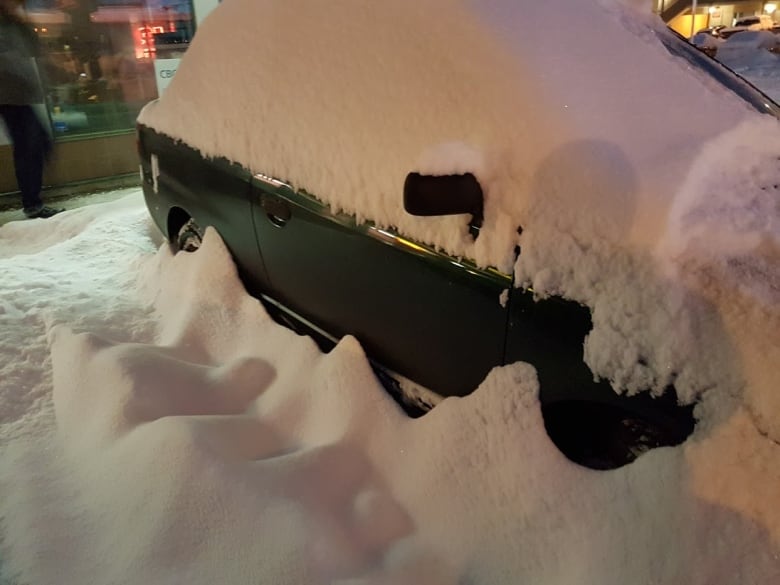Record high temperatures bring winter floods to Prince George
Water can't empty into drains because they are still frozen

High temperatures in Prince George broke a weather record more than 100 years old this week, flooding homes and streets as ice from a recent deep freeze clogged up storm drains.
"We have an 1,100-square-foot basement, and there was water up to or three inches in the entire basement," said Mark Scott who lives in the Van Bien neighbourhood of Prince George.
"My girlfriend has a nail salon downstairs ... that has literally stopped her from doing any work whatsoever."
On February 15, temperatures reached 11.9 C, breaking the previous record of 10.6 in 1916.
The unseasonable warmth comes just days after the city was experiencing lows of -28 C and over 20 centimetres of snow fell within 24 hours, prompting police to ask people not to drive unless absolutely necessary.

City spokesman Michael Kellett said the rapid transition from unusually cold to unusually warm is taking its toll on infrastructure.
"Due to the recent deep-freeze the ground is still really frozen," he said. "The lead from the catch basins that go to the water mains is still really frozen. So crews are having to go around with tools called steamers to melt that blockage, so the ponding can flood away."
Kellett said crews have responded to more than 215 calls from residents, alerting them to blocked culverts and ditches and flooded homes and basements.

Scott wants the city to take a more proactive approach to the flooding, saying the same thing happened to him and his neighbours in 2014.
"Year after year, I myself go out and build trenches through the ice and the snow, so the water keeps flowing to where it's supposed to go," he said.
"The city or somebody should build a retaining wall or some proper drainage here so this wouldn't happen to any of us again."
Scott said he's contacted a lawyer to find out if the city has any responsibility for the flooding, as he's worried about his insurance if water damage to his home becomes a regular occurrence.
Kellett said it would be up to city council to decide if it will review how the city prepares for localized flooding events.
For more stories from northern British Columbia, follow CBC Daybreak North on Facebook.